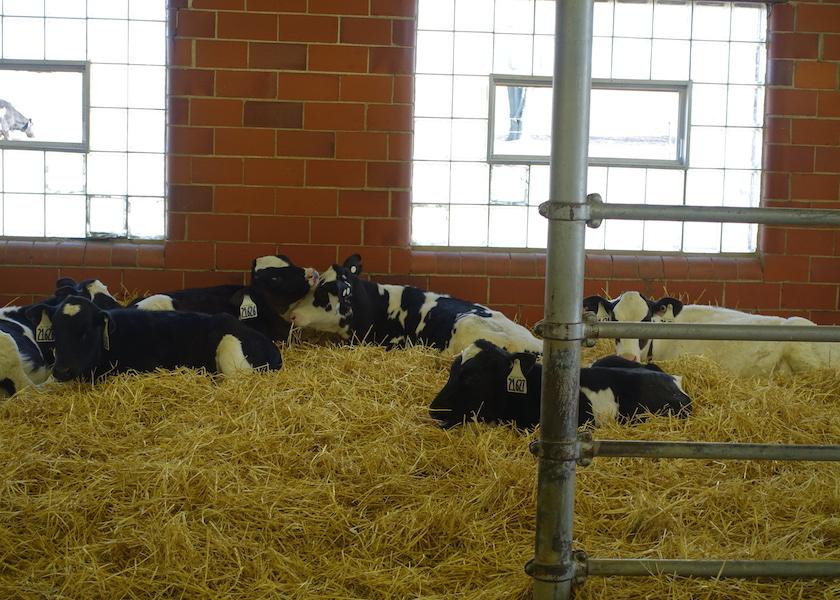Crypto in Calves: Better Managed with a Shovel than a Needle

If you’re a calf raiser, you probably know about cryptosporidium. It’s that pesky parasite that causes scours in young calves, spreading via oocysts that pass through animal feces.
Seasoned calf managers recognize crypto scours that generally strike in calves a few weeks old. While usually not fatal, they set back calf growth and immunity, and increase labor demands due to necessary supportive care. This bulletin from Kansas State University emphasizes that there are no effective or approved treatments or vaccines for cryptosporidium scours.
That’s why renowned calf and heifer research Jim Quigley advised, “you can do more good with a shovel than you can with a needle” when it comes to crypto.
In a recent edition of his “Calf Notes.com” online library, Quigley reviewed two recent studies on crypto in calves, which reinforced existing knowledge of the disease and how to keep it at bay. The first, a Brazilian project, monitored the shedding of Cryptosporidium parvum oocytes by calves for the first 10 months of life. They observed the conditions that led to the highest infection risk were:
- Contact with goats and sheep.
- Use of a semi-intensive rearing system.
- Fecal contamination of food and water.
The second study, conducted in the United Kingdom, analyzed hundreds of previously published scientific studies on cryptosporidium. From the 14 studies they determined were the most scientifically sound, the factors that were consistently associated with risk of infection were:
- Calves housed in close contact with other calves.
- Larger-sized herds.
- Proximity to other animals. (One study concluded that if a pen has an empty period between housing animals, the risk of infection was reduced).
- Type of flooring – hard floors reduced the risk of infection.
- Warm and wet weather increased the risk of infection.
Quigley said both papers confirmed the risk of crypto infections thanks to its transmission activity via the fecal-oral route. Conducted half a world apart and incorporating data from around the world, the two studies underscored the management conditions consistent with high incidences of crypto infections – animal crowding and close contact with other animals; failure to remove feces from the calves’ environment; and incorrect or inconsistent cleaning protocols.
“These studies don’t necessarily shed any “new” light on how to minimize the risk of infection with crypto,” noted Quigley. “But both are a good reminder that ‘cleanliness’ is next to Godliness’ in calf-rearing systems.”







